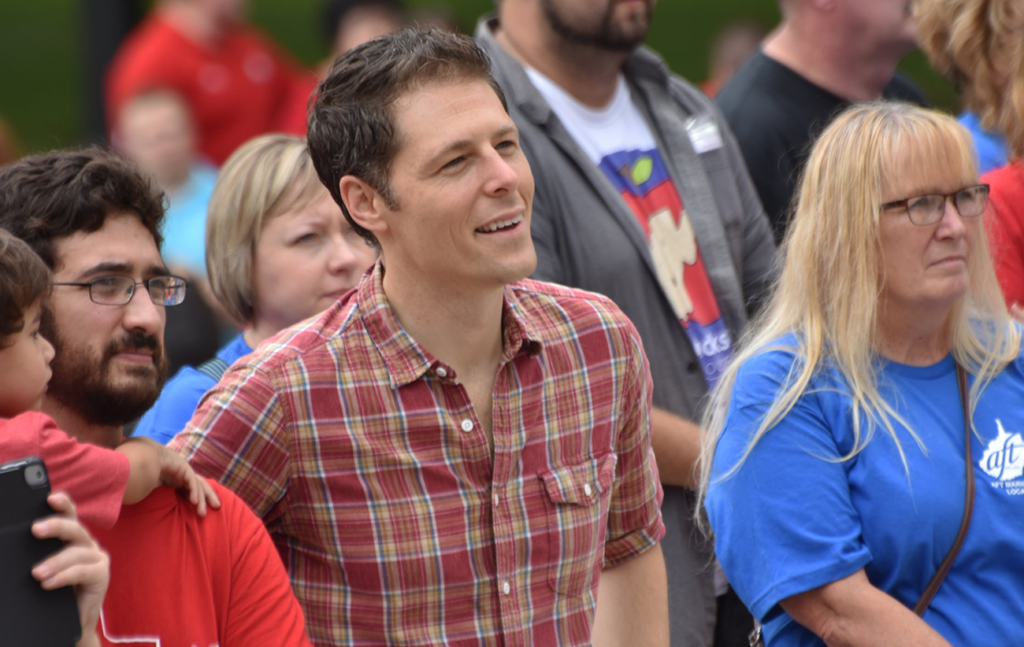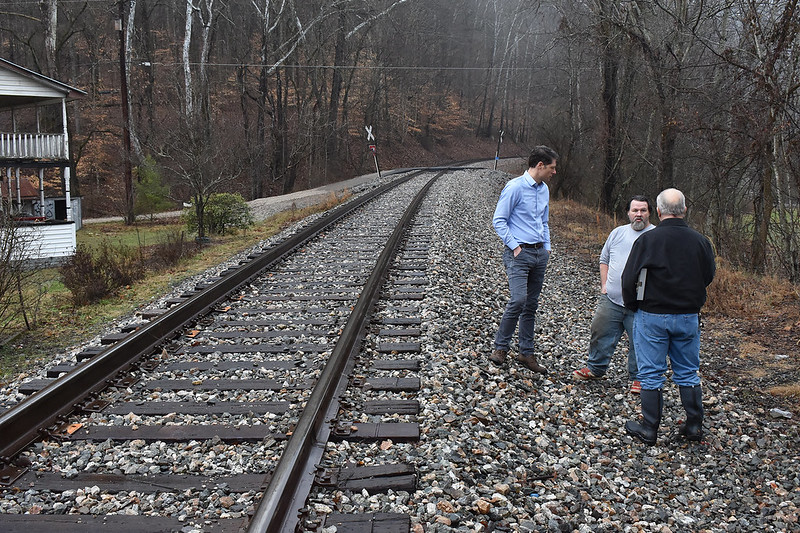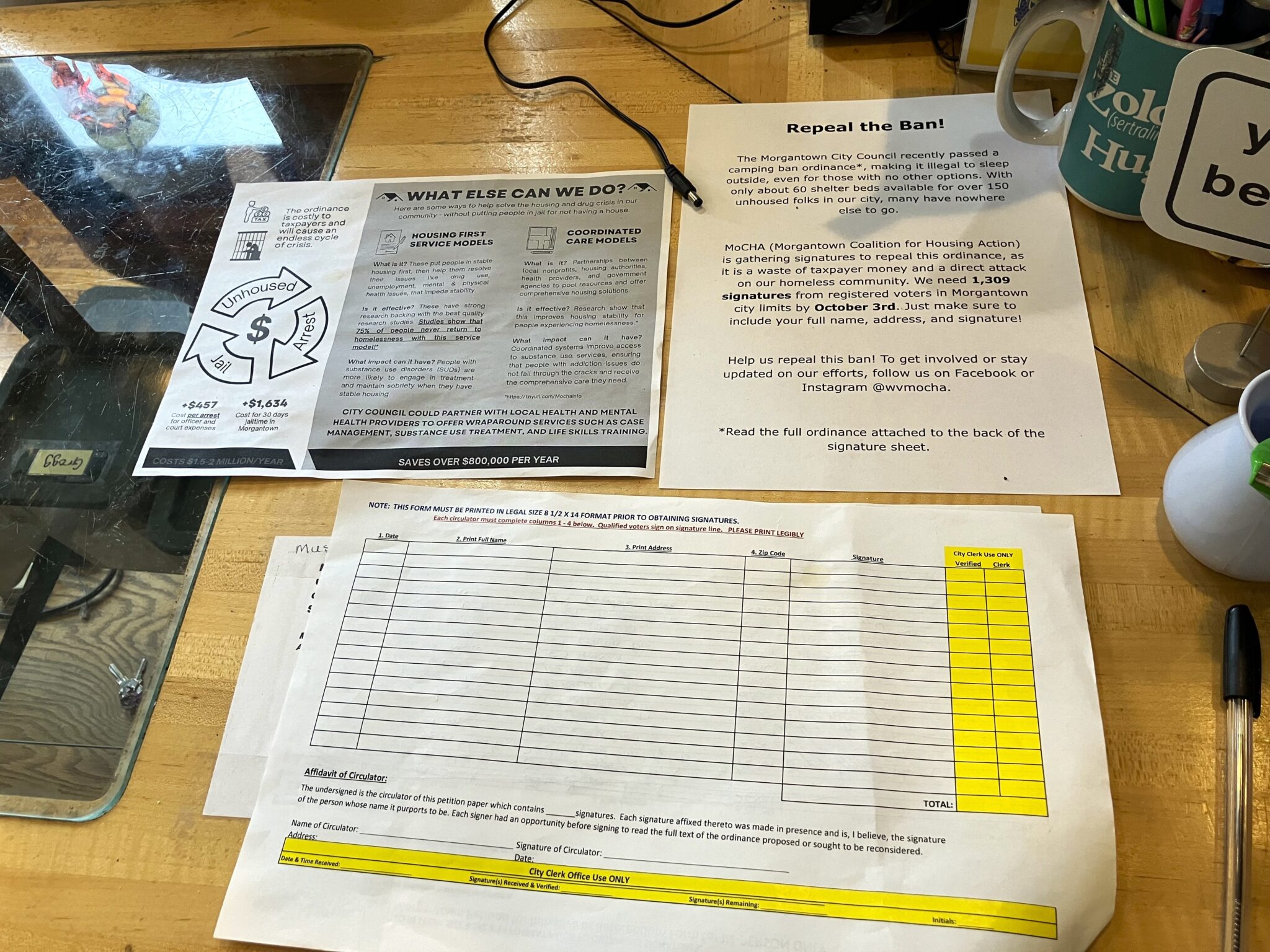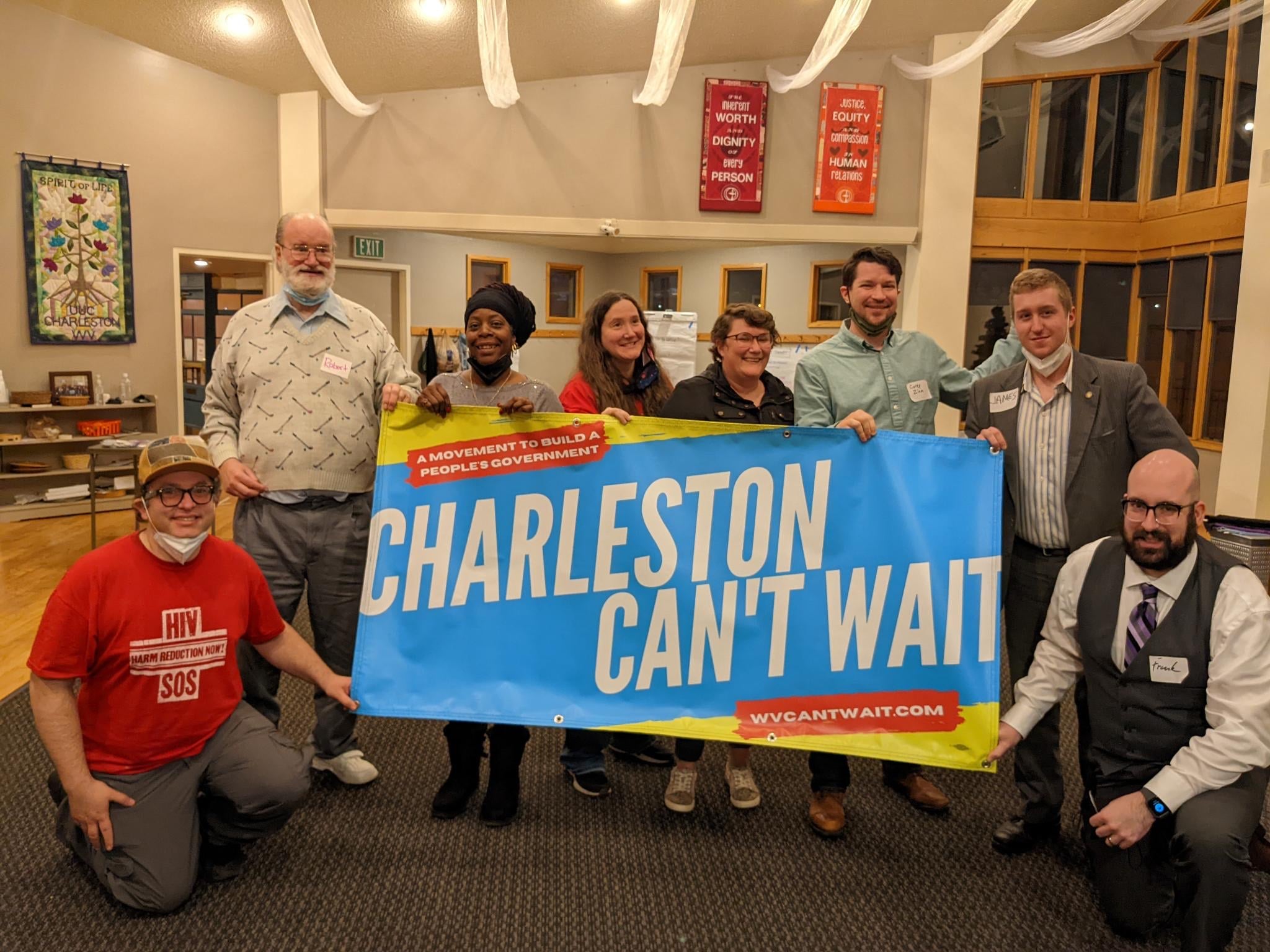Written by Hoppy Kercheval
Photograph by Ric MacDowell/WV Can’t Wait
Stephen Smith is young (38), smart, passionate, telegenic and bursting with ideas, and he might be the next governor of West Virginia.

Stephen Smith is young (38), smart, passionate, telegenic and bursting with ideas, and he might be the next governor of West Virginia.
I emphasize “might” because the odds are stacked against the Democrat from Kanawha County, who for the last six years has served as director of the West Virginia Healthy Kids and Families Coalition.
After all, he’s not an established figure, nor has he worked his way up the ranks of the Democratic Party. He’s not independently wealthy and he’s decidedly progressive in a deep red state that Donald Trump won by 42 points.
Not to mention that Smith is a proud—shudder—“community organizer.” But it is that background, which became a derisive term for conservatives when applied to Barack Obama, which could provide Smith a route to the governor’s mansion.
Smith has already started a two-year-long campaign to mobilize groups of voters with a grass roots effort. He plans a field organization that will tap into constituency groups that will in turn come up with their own local candidates. Think of the current top down nature of the political structure and turn it on its head.
He expects to build support by standing for things as opposed to the current political paradigm where a candidate and their third party supporters spend time and resources convincing voters how bad the other candidate would be.
Smith believes his approach will energize voters who have become disillusioned with traditional politics, who think no one is listening or doing anything about the problems they face every day.
“Our governor isn’t the answer, but if we have a government that looks more like the people and involves more of the people who are closest to our communities, we can get the change we want,” he said in an interview recently with MetroNews.
We saw some evidence of that in the election last month where voters were mobilized in key precincts that helped propel Democratic candidates to victory.
His conversations are sprinkled with the kinds of references one associates with leftist thinking—denigrating large corporations, “free” this and that. Last year he wrote about a fact finding tour of the Rust Belt and Appalachia where he met with “organizers, advocates, entrepreneurs, and working families” who he believes are part of what he calls a “revolutionary moment in America.”
That kind of talk can scare folks, especially in a state where the status quo carries considerable weight and where taxpayers know intuitively that there is no such thing as a free lunch. However, it is also possible—and this is what Smith is counting on—that there is a great majority out there who are more interested in problem solving than the brutal mutually assured destruction of politics today that does not fix what’s broken.
Importantly, he has a strategy to get elected that can work because campaigns used to be all about local organization before it just became easier (and vastly more expensive) to outspend the other guy in media buys.
The conventional wisdom would be to dismiss Smith’s campaign as Quixotic, but the last few elections have taught us valuable lessons about using the past as prologue in politics. His campaign will, at the very least, be an indication of whether there is a different path toward election.



